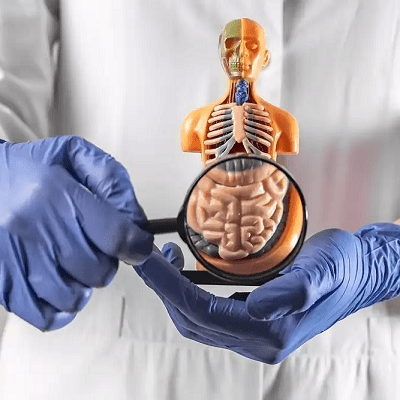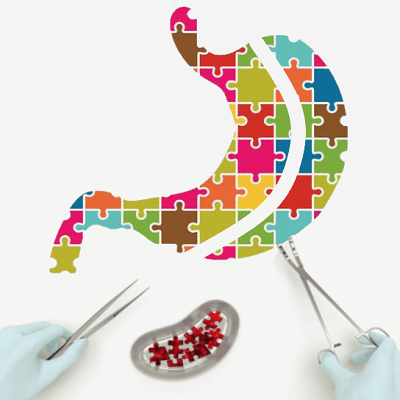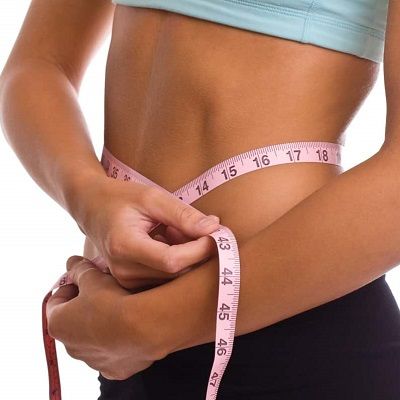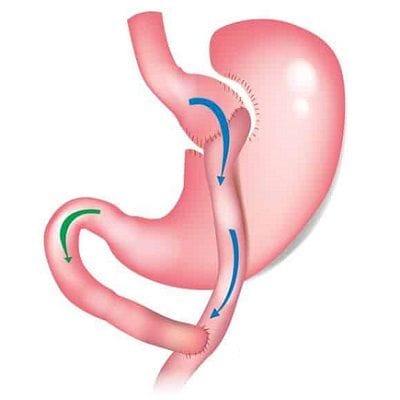
Have you been struggling with reaching your weight loss goals? Done everything you could from making dietary changes to exercising regularly but nothing seems to be working? Worry no more! Gastric Bypass Surgery in Dubai will address all your concerns and successfully provide you with the results you have been long looking for. From what goes on during the process to what the dietary guidelines are, this guide will provide you with every minute detail there is to know. Not only will you achieve your weight loss goals but this effective tool will bring about significant improvements in your overall health. Continue reading and gain all the information you need regarding Diet Plan After Gastric Bypass Surgery.
What is Gastric Bypass Surgery?
This surgical procedure is designed for those individuals who have not been able to achieve their weight loss goals through diet and exercise. By altering the digestive system, it encourages weight loss along with improving health problems such as sleeping difficulties or high blood pressure leading to improving the overall well-being of the individual. It alters the digestive system by creating a little pocket in the upper portion of the stomach and attaching the jejunum, which is a small section of the small intestine that absorbs nutrients to the new pocket. This results in a limited food intake as well as a reduction in the amount of nutrients the body takes in from food.
What Goes on During the Procedure?
Read the step-by-step guide on what goes on during the surgery:
- You will be provided with general anesthesia to ensure your comfort and a painless process.
- The treatment area on the abdomen will be cleaned and prepped. This is done to reduce any chances of getting an infection.
- Several small incisions will be made in the abdomen along with tiny cameras on surgical tools to get a look inside of it.
- By using stapling instruments, a small pocket is created in the upper region of the stomach. This pocket will now be the new stomach that will store less amounts of food.
- The next step involves rerouting a small part of the small intestine called the jejunum. This small part is connected to the new pocket.
- A leak test is then performed to make sure there is no leakage between the pocket and the reattached intestine.
- The incisions are then closed with stitches or using small metal fasteners known as staples.
- You will be required to stay at the hospital for one to two days for monitoring.
- Patients are advised to attend all their scheduled appointments to have their progress monitored.
Post-Operative Dietary Guidelines:
You are required to make significant changes in your diet post-surgery. The guidelines regarding your diet are given below. These are:
- You are required to stay on a liquid diet for the initial two weeks. The liquids you intake must be calorie-restricted aiming to keep you hydrated and to heal your digestive system. Examples include watered-down fruit juices, water, and broth.
- In the following one to two weeks, you may start the intake of low-fat liquid meals that are sugar-free. Examples include light soup without vegetables, protein shakes, and low-fat milk. These will help in healing the stomach further.
- After this period, you may introduce soft foods into your diet such as yogurt, mashed potatoes, shredded chicken and fish, and scrambled eggs. Continue their intake for the next two to four weeks.
- This phase is followed by the reintroduction of the regular food diet. However, your focus must be on a healthy diet that is rich in nutrients with low calories. These include Vegetables, fruits, and whole grains.
- Staying hydrated is essential throughout the day.
- You must avoid processed and fatty foods.
Benefits:
Below are some of the advantages offered by this method:
- Aids in significant weight loss.
- Improves the overall well-being of the individual.
- A highly effective tool for people with type 2 diabetes.
- A feeling of fullness is created which leads to a reduction in calorie intake.
- Confidence boost leads to improvements in one’s self-esteem.
- It reduces risks of certain diseases which include high blood pressure along with heart disease.
Book a Free Consultation!
If you need more information regarding Diet Plan After Gastric Bypass Surgery, fill out the form given below to book a free consultation. Or you may call us to schedule an appointment with one of our leading experts at Dynamic Clinic.











